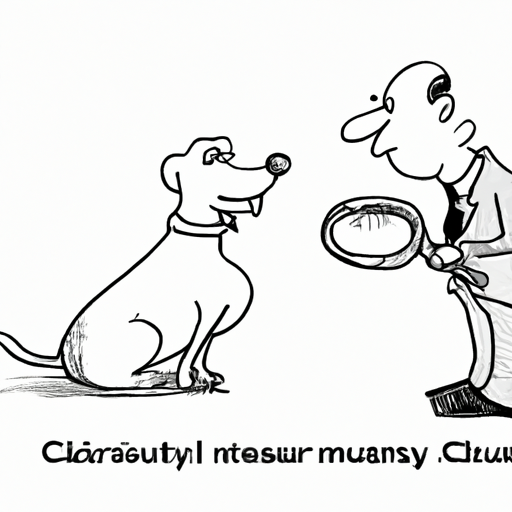As a devoted dog owner, you’ve likely noticed your furry friend’s cold, wet nose nudging your hand or face. But, have you ever wondered what it means if a dog’s nose is wet? Understanding the condition of your pet’s nose can provide valuable insight into their health, hydration, and even their mood. This article will explore the science behind the mystery of the moist canine nose.
Table of Contents
- Understanding the Canine Nose
- The Role of a Wet Nose
- Reasons Behind a Dry Nose
- When to Be Concerned
- FAQ
Key Takeaways
- A dog’s wet nose is not always a sign of good health.
- A dry nose does not necessarily mean your dog is unwell.
- Changes in a dog’s nose can indicate changes in health, hydration, or mood.
- Always consult with a veterinarian if you observe abnormal changes in your dog’s nose.
Understanding the Canine Nose
The canine nose is an extraordinary organ, capable of detecting an impressive range of scents. A study by the Florida State University shows that a dog’s sense of smell is between 10,000 to 100,000 times more accurate than ours.
Dogs have a wet nose due to a thin layer of mucus that helps them absorb scent chemicals. This process is called olfaction. They then lick their noses to sample these chemicals, helping them understand their environment better. This is one of the reasons why you’ll often see your dog licking its nose.
The Role of a Wet Nose
A wet nose is a natural state for most dogs. Besides aiding in scent detection, a moist nose also helps regulate body temperature. Dogs don’t sweat like humans. They primarily release heat through panting and, to a lesser extent, through the evaporation of moisture from their nose. This natural cooling system is one of the many fascinating ways dogs have adapted to their environment. For more about how dogs adapt to their environment, here is an insightful article from www.onetopdog.com.
Reasons Behind a Dry Nose
Contrary to popular belief, a dry nose does not always indicate illness in dogs. Many factors can contribute to a dry nose, including weather, dehydration, and exposure to heat or cold. Some dogs also naturally have drier noses than others.
For example, if your dog has been basking in the sun, its nose may be temporarily dry but should return to its usual state once it cools down. Similarly, a dry nose while sleeping is normal, as dogs don’t lick their noses as often when they’re asleep.
When to Be Concerned
While both wet and dry noses can be perfectly normal for dogs, there are certain circumstances when you should be concerned. If your dog’s nose is persistently dry and cracked, it may be a sign of a medical condition like dermatitis or a sunburn. Similarly, if your dog’s nose is runny, and the discharge is yellow, green, or bloody, it could indicate a respiratory infection.
In both cases, it’s essential to consult with a veterinarian. For more information on common health issues in dogs, check out this useful guide.
Frequently Asked Questions
1. Can I tell if my dog is sick by the wetness or dryness of its nose?
While changes in your dog’s nose can indicate health issues, it’s not a definitive measure. If you notice persistent changes or other signs of illness, consult a veterinarian.
2. Why is my dog’s nose always wet?
A dog’s nose is usually wet due to the mucus layer that aids in scent detection. Dogs also lick their noses, which keeps them moist.
3. Is it bad if my dog’s nose is dry?
A dry nose isn’t necessarily bad. However, if your dog’s nose is persistently dry and cracked, consult a veterinarian.
In conclusion, a wet nose isn’t always a sign of a healthy dog, and a dry nose doesn’t always mean your dog is unwell. It’s important to understand your dog’s normal state and consult a vet if you notice unusual changes. For more on understanding your dog’s behavior and health, visit this resourceful page.



